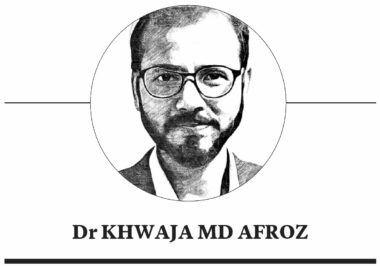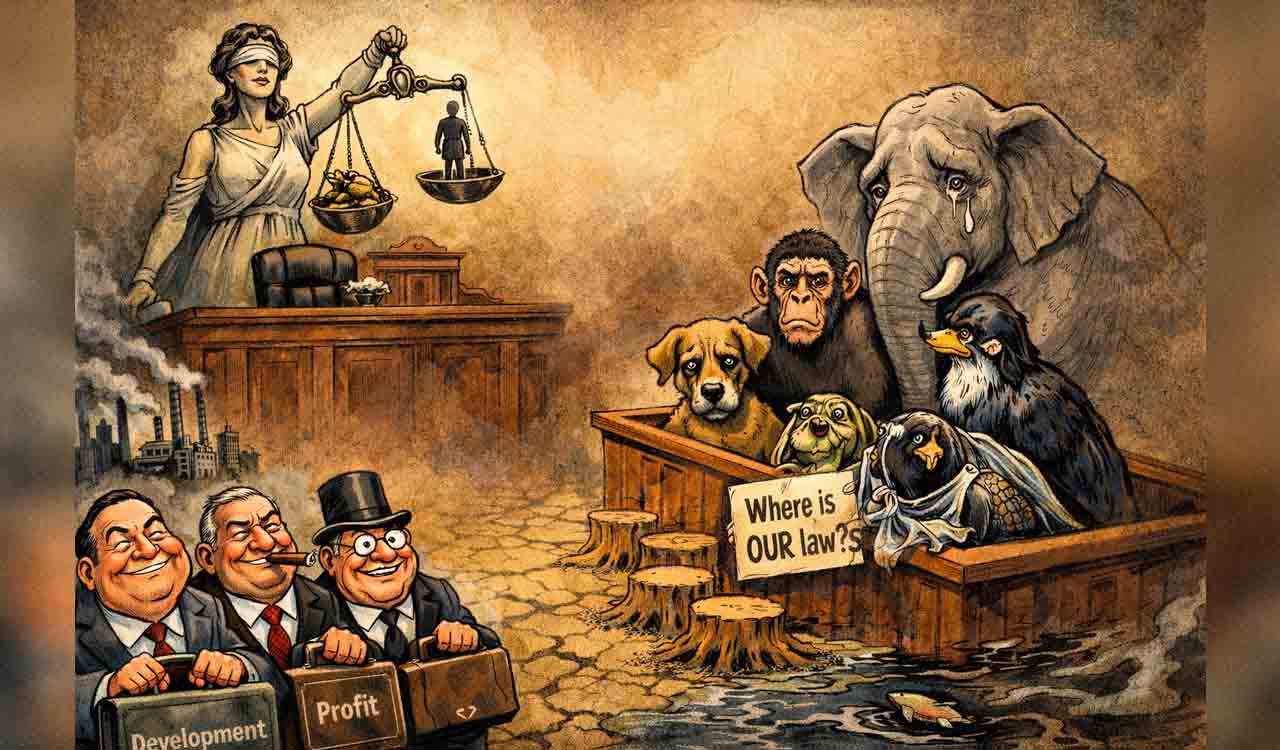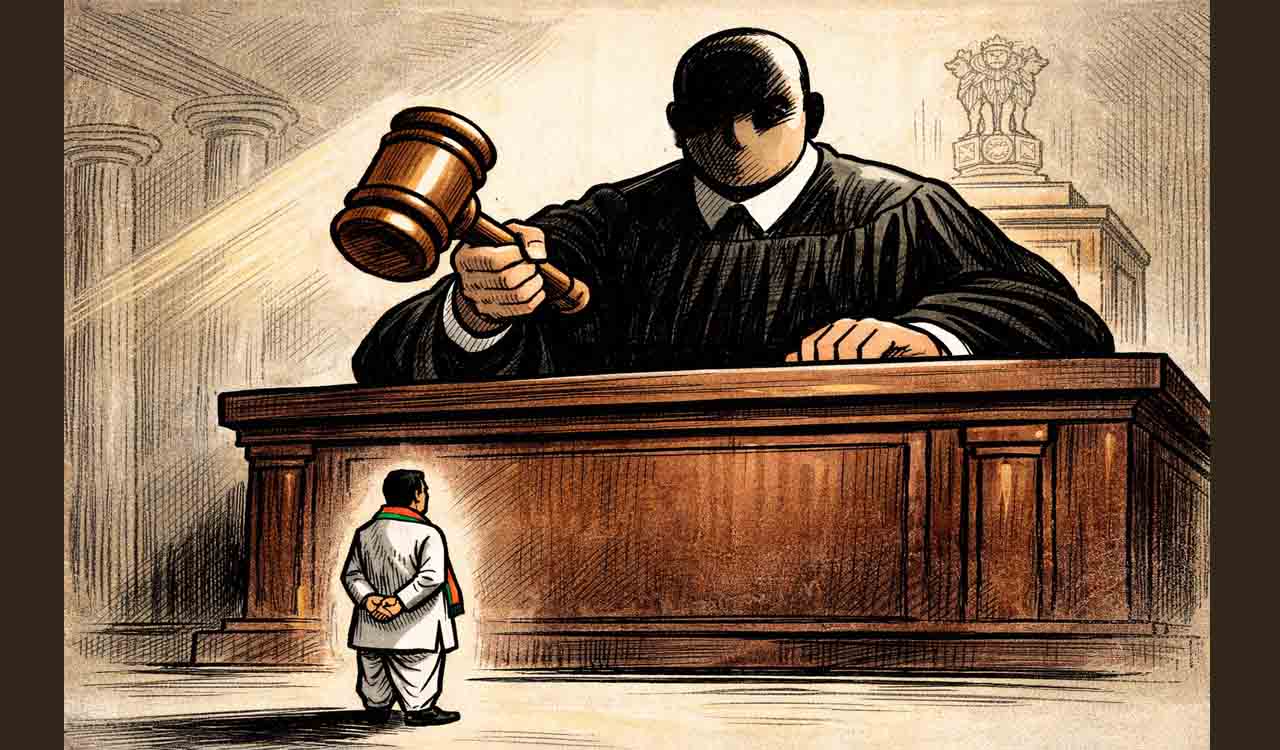Opinion: Guns, Governments, Greed — the global nexus of war and power
War is no longer just a tragedy — it’s a profit-driven ecosystem, where returns matter more than resolution

By Dr Khwaja Md Afroz
Modern war is not about truth. It is about power and profit – Edward Said. Ironically, war remains one of the most stable economies and political strategies in a world that prides itself on democratic principles, global institutions, and human rights declarations.
From Ukraine to Gaza, Iran, Sudan to Syria, and proxy wars in the South China Sea and Indo-Pacific, the world is bleeding red. Modern nations, armament manufacturers, and political elites are increasingly enmeshed in a profit-driven war ecosystem, which is more unsettling than unresolved conflicts.
Business Model not Tragedy
War is no longer merely a human tragedy. It has evolved into a calculated business model where profits, power, political survival and dominance are prioritised over peace. According to Stockholm International Peace Research Institute (SIPRI)’s 2025 study, global military spending reached a record USD 2.718 trillion in 2024, up 9.4 per cent from 2023 — the highest increase since the Cold War.
NATO members accounted for USD1.506 trillion, 55 per cent of global spending, with 18 of 32 nations exceeding the 2 per cent GDP defence threshold for the first time. The United States dominated spending with USD 877 billion (63% of NATO’s share), followed by China at USD 314, Russia (USD 149 billion an increase of 38 per cent and 7.1 per cent of GDP); Germany (USD 88.5 billion, up 28 per cent ); India (USD 86.1 billion, up 1.6 per cent), and Poland (USD 38 billion, up 31 per cent).
West Asia’s military spending surged 15 per cent to USD243 billion. Israel’s defence budget rose 65 per cent, the highest growth since 1967 while Iran’s budget fell 10 per cent to USD7.9 billion due to economic sanctions.
The arms industry drives this surge. The top 100 arms corporations sold USD 597 billion worth of weapons in 2022 per SIPRI, despite a global slowdown. Companies such as Lockheed Martin, Raytheon, BAE Systems, and Rosoboronexport continue to profit from the war. The top 10 international arms exporters in 2023 led by the US, followed by Russia and France, further underscore how deeply militarism is embedded in economic policy.
Military expenditure and arms exports are no longer merely defence measures but an integral part of economic and political strategy. In today’s world, guns, government, and greed are tightly interlinked, making peace unprofitable and conflict lucrative.
Political Warfare Complex
Rising military budgets often accompany authoritarianism and electoral instability. Leaders increasingly use external wars or internal repression to hide domestic policy failures. War and hyper-nationalism are used as tool to muzzle citizen resentment even in democracies. For many leaders in both Global North and South, facing economic downturns or electoral upheaval, the most convenient narrative is a security threat – real or imagined (Rand).
The 2003 Iraq War, based on flawed intelligence, cost over USD 2 trillion and led to more than 3,00,000 civilian deaths. The ongoing Russia-Ukraine war has displaced 14 million people and killed approximately 5,00,000 combatants. Still, billions are spent on weapons instead of peace-building.
Veil of Democracy
In modern democracies, people are increasingly used as instruments to sustain military-industrial institutions. Defence firms fund think tanks that influence national policy, while retired generals join defence boards or legislatures. The nexus between political power and weapons manufacturing is well documented.
Military spending in India touched Rs 6.2 lakh crore in 2023-24, even as education, healthcare, and unemployment remain underfunded. The term “national security” is often used as a tactic to deflect accountability. Digital warfare and monitoring are simultaneously used to suppress dissent, label activists anti-national, and militarise police. Uniforms and algorithmic messaging have blurred the line between democracy and dictatorship.
The Real Casualties
Citizens are not merely economic victims — they are existential casualties. They finance wars through taxation, bear the brunt of inflation due to disrupted supply chains, and perish in conflicts they neither support nor comprehend. Currently, over 123 million people are displaced globally due to war and violence (UNHCR, 2024).
Citizens are not merely victims of economic circumstances; they are casualties of existence itself. They finance the conflict through taxation, bear the brunt of inflation resulting from disrupted global supply chains, and perish in wars they neither endorse nor comprehend. Currently, over 123 million people are displaced globally due to war conflict and violence (UNHCR, 2024).
According to Stockholm International Peace Research Institute (SIPRI)’s 2025 study, global military spending reached a record USD 2.718 trillion in 2024, up 9.4 per cent from 2023 — the highest increase since the Cold War
This acceptance and normalisation glorify weapons, governments, and greed. In place of defence, war becomes a source of distraction, power, and dividend — no longer just a measure of defence.
Urgent Thinking
Lobbying and ethical norms have the potential to differentiate politics from the arms business. To ensure that the spending of the military does not obscure the advancement of humanity, it should be audited openly. Diplomacy for peacebuilding should be viewed as a strategic investment and not a form of charity.
When it comes to war-mongering and opportunistic militarism, political leaders ought to be held accountable for their actions. Civil society must be empowered to resist the militarisation of both society and government.
War is not inevitable; rather, it is a choice. When democracies embrace the traits of war economies and view peace as a sign of weakness, we need to question not just those who profit from war, but also those who perpetuate it.
War is not only about safety, but it also includes power, contracts, careers, and control. In the 21st century, our ability to remain silent is equivalent to complicity. If we do not address this nexus soon, we may find ourselves living in democracies that function as empires, experiencing tranquillity only amid conflict and never in its absence.

(The author is faculty in the Department of Political Science, Maulana Azad National Urdu University [MANUU], Hyderabad)
Related News
-
Odisha government reviews protection of Lord Jagannath temple lands
5 hours ago -
Iran holds military drills with Russia as US carrier moves closer
5 hours ago -
This is taxpayers’ money: Supreme Court raps freebies culture
6 hours ago -
Hyderabad: Residents oppose Gandhi Sarovar Project over ‘forcible’ land acquisition
6 hours ago -
Australia level series as Indian women slide to 19-run defeat in second T20I
6 hours ago -
Karnataka beat Uttarakhand in semis, to face Jammu and Kashmir in Ranji final
6 hours ago -
Five Osmania varsity players in South Zone squad for Vizzy Trophy
6 hours ago -
Disciplined West Indies bundle out Italy with ease, tops Group C in T20 WC
6 hours ago




